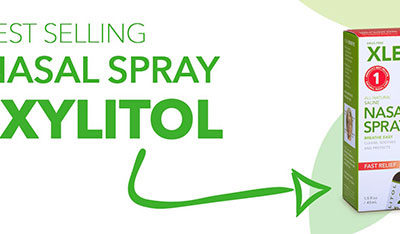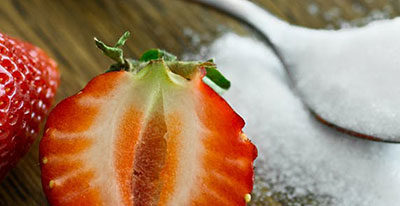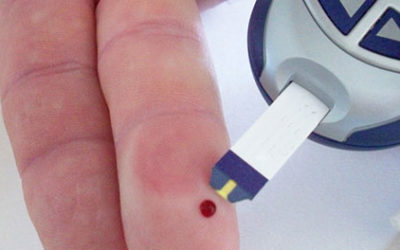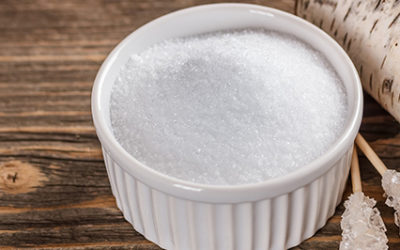Consuming sugar substitutes in lieu of sugar is an excellent choice for your body’s over-all health and functionality. But are they good for your teeth? As you well know, consuming sugar can lead to tooth decay and cavities. However, according to the science division of the American Dental Association sugar itself is not the cause of tooth decay and cavities.
In reality, dental caries are caused by the bacteria in dental plaque that thrive on sugar. As a byproduct the sugar eating bacteria produce an acid that eats away at tooth enamel which causes decay and eventually cavities. Sugar substitutes don’t have the same effect because oral bacteria can’t metabolize them like they do sugar. In fact, polyols, a family of sugar substitutes actually have anti-bacterial properties.
Also known as sugar alcohols, the members of the polyol family include sorbitol, maltitol, isomalt, and of course, xylitol. These naturally occurring sweeteners are derived from fruits, vegetables, and plant fibers. However not all polyols are created equally. In many clinical studies it has been confirmed that xylitol has superior oral benefits.
Aside from preventing the production of bacterial acid, xylitol also assists in keeping a neutral pH level in the mouth. These two effects of xylitol work hand in hand to stop acid-producing bacteria in their tracks. When the pH level of saliva and plaque do not fall, no acid is formed. Also, because oral bacteria cannot break down and metabolize xylitol, the amount of acid-producing bacteria may potentially decrease by as much as ninety percent.
In addition to xylitol’s impact on the population of acid-producing bacteria and their byproduct, xylitol is also capable of repairing damaged tooth enamel in certain applications. As an ingredient in oral care products that stimulate saliva such as chewing gum, tooth paste, and oral rinse, xylitol can help to revitalize damaged enamel. When xylitol helps to stabilize the pH balance and is contained in saliva, calcium and phosphate salts begin to fortify weakened enamel.
There is nothing to worry about in choosing xylitol as a sugar substitute. In fact by making the switch to xylitol, you may be able to reverse some of the damage that was there before.
Related Articles
Xylitol Nasal Spray Recipe – What’s In Xlear?
Xlear's xylitol nasal spray recipe only contains four simple ingredients. Xlear, Inc. is one of our major partners and their namesake nose wash is a worldwide favorite being sold in South Africa, the EU, Australia, Turkey, Kuwait, Saudi Arabia,...
How Sugar Rots Your Teeth vs A Sugar Alternative
Xylitol sweetener looks incredibly similar to sugar, but it won’t rot your teeth! Unfortunately, most people’s favorite sugars are the ones that tend to rot your teeth. So how and why does sugar rot your teeth and how does a sugar alternative...
Natural Sugar Substitutes for Diabetics and Prediabetics
With so many options available, what’s the best natural sugar substitutes for diabetes? Unfortunately, the number of people with diabetes continues to rise. In fact, according to the United States Centers for Disease Control and Prevention, or...
Xylitol Makes More Butyrate And More!
xylitol increase butyrate, decreases inflammation and propionic acid, which may help autism
Why Xylitol Works
xylitol provides both oral and nasal defenses by its action on the bacteria that cause our problems, and by enhancing our defenses in those areas.
Best Sugar Alternatives for Tea?
When you get up in the morning and are dragging with no energy, you reach for a cup of tea or coffee. While there are health benefits to drinking tea or coffee in the morning, you don’t want to negate them with adding a couple spoons of sugar...











